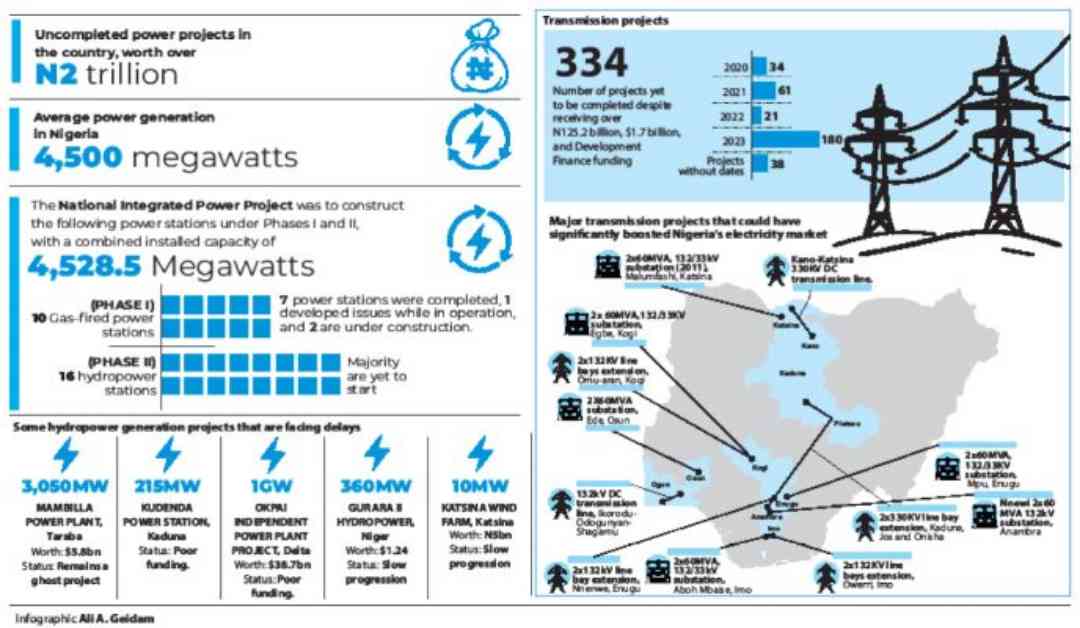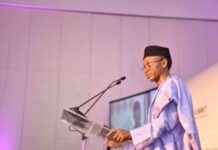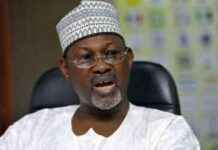Stalled N2 Trillion Power Projects: A Deep Dive into Nigeria’s Electricity Crisis
In Nigeria, a country with over 230 million people, the power sector remains in a state of perpetual struggle. Despite numerous attempts to address the chronic electricity shortage, power projects worth over N2 trillion lay incomplete or merely awarded but yet to commence. This investigation by Daily Trust has shed light on the magnitude of the issue and its far-reaching implications.
The Unfinished Business of Power Generation
The uncompleted projects, mostly concentrated in the generation and transmission sub-sectors, have become a symbol of the systemic challenges plaguing Nigeria’s power sector. Despite the allocation of substantial resources, experts point to systemic issues, lack of transparency, and accountability as the primary reasons for the prevalence of abandoned power projects.
The National Integrated Power Project (NIPP), initiated in 2004 to bridge the power supply gap, has faced its own set of hurdles. With over $8 billion allocated, the project was intended to boost electricity generation, transmission, and distribution infrastructure. However, delays in completing critical power plants like the Egbema and Gbarain power plants have hampered progress significantly.
Transmission Troubles: The Challenge of Completing Projects
On the transmission front, over 334 projects initiated since 2007 remain unfinished, despite receiving substantial funding and support from international organizations. The delay in completing these projects, estimated at over N2 trillion, has further exacerbated Nigeria’s electricity crisis, leaving many communities underserved and in the dark.
The lack of accountability and transparency in addressing the challenges facing the power sector has only added to the complexity of the situation. Efforts to seek clarity from the Ministry of Power have yielded little result, highlighting the need for a more robust and proactive approach to tackling the issue.
Expert Insights and Calls for Action
Experts in the field emphasize the need for greater accountability, transparency, and public-private partnerships to drive meaningful change in Nigeria’s electricity sector. Kunle Olubiyo, President of the Nigeria Consumer Protection Network, underscores the importance of project conceptualization and delivery in achieving intended objectives, rather than serving as conduits for corruption.
Adetayo Adegbemle, the convener of PowerUpNigeria, calls for sustainable and pragmatic solutions to address the challenges facing the power sector. He highlights the need for projects that prioritize Nigeria’s interests over external agendas, urging a shift towards independent procurement and sustainable energy solutions.
In conclusion, the stalled N2 trillion power projects underscore the urgent need for a comprehensive and coordinated approach to revitalize Nigeria’s electricity sector. As the country grapples with the repercussions of unfinished projects and systemic issues, the time is ripe for decisive action and a renewed commitment to providing reliable and sustainable electricity to all Nigerians.















